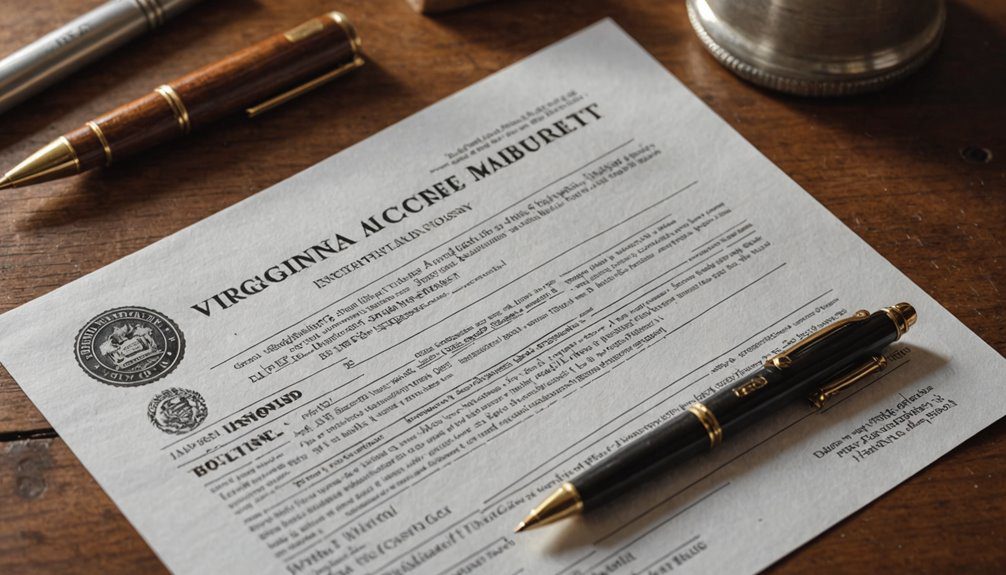If you're considering becoming a contractor in Virginia, you need to understand the significance of the Virginia Contractor License Bond. This bond not only protects your clients but also establishes your credibility in a competitive market. It's a requirement for obtaining your contractor's license, which means you can't afford to overlook it. Understanding the ins and outs of this bond can help you navigate the complexities of compliance and build trust with your clients. But what does the process of obtaining this bond actually involve, and what challenges might you face along the way?
What Is a Contractor License Bond?

Understanding the ins and outs of a contractor license bond is crucial for anyone in the construction business. A contractor license bond is a type of surety bond that protects clients and the state by ensuring that contractors abide by local laws and regulations.
When you obtain this bond, you're essentially promising to conduct your business ethically and responsibly. If you fail to meet these obligations, the bond provides a financial safety net for your clients, allowing them to file a claim against it for any damages incurred due to your actions.
This bond isn't just a piece of paper; it's a commitment to uphold industry standards. In Virginia, obtaining a contractor license bond is a requirement for getting your contractor's license.
It typically involves paying a premium based on your credit history and the bond amount required by the state. When you're bonded, it not only enhances your credibility but also builds trust with your clients. Insurance broker bonds ensure accountability and consumer protection, making them essential in the industry.
Understanding what a contractor license bond entails can help you navigate the licensing process with confidence and ensure that you're compliant with state regulations.
Importance of the Bond
The importance of a contractor license bond can't be overstated in the construction industry. This bond serves as a safety net for your clients, ensuring that you're committed to adhering to local laws and regulations. When you hold a license bond, it demonstrates your professionalism and reliability, setting you apart from competitors who may not prioritize this vital requirement.
By having this bond, you provide clients with peace of mind. They know that, should any issues arise—like incomplete work or failure to meet safety standards—they have a means to seek compensation. This not only builds trust but also enhances your reputation, making clients more likely to choose you for their projects.
Additionally, some jurisdictions require a contractor license bond before you can legally operate. Without it, you could face fines or lose your license altogether, jeopardizing your business. In Illinois, for instance, many industries require surety bonds to ensure compliance and protect all parties involved.
In essence, the bond protects both you and your clients, fostering a secure working relationship.
You'll find that investing in a contractor license bond is a crucial step toward establishing your credibility and ensuring long-term success in the construction field.
Requirements for Virginia Contractors

To operate as a contractor in Virginia, you need to meet specific requirements that ensure compliance with state regulations. First, you must obtain a contractor's license from the Virginia Department of Professional and Occupational Regulation (DPOR). Depending on the type of work you plan to perform, this may involve a Class A, Class B, or Class C license, each having different thresholds for project size and financial requirements.
You'll also need to provide proof of experience and skills in your trade. For most licenses, this includes documentation of at least two years of experience in the construction industry. Additionally, you must pass an exam demonstrating your knowledge of relevant building codes, safety regulations, and business practices.
Another critical requirement is to secure a contractor license bond. This bond serves as a financial safety net for clients and ensures you adhere to state laws. It is important to note that similar to Louisiana Surety Bonds, these bonds help protect clients and ensure compliance with local regulations.
Lastly, you'll need to register your business and obtain any necessary local permits. By fulfilling these requirements, you'll be well on your way to establishing a successful contracting business in Virginia.
Process to Obtain the Bond
Securing a contractor license bond in Virginia involves a few straightforward steps.
First, you'll need to gather the necessary information about your business, including your legal business name, address, and the type of work you'll be performing. You'll also want to collect any financial documents that may be needed, like your credit report, since these can impact your bond premium.
Next, reach out to a surety bond provider. It's essential to compare quotes from different companies to find the best rate and terms. Many providers will require you to fill out an application form and may ask for additional documentation to assess your eligibility.
Once you've chosen a surety, they'll conduct a thorough review of your application and financial background. In Ohio, for example, specific bond amounts are often determined based on the type of work you are performing and local regulations.
If approved, you'll receive a quote for the bond premium, which you'll need to pay before the bond is issued. After payment, the surety will provide you with the bond paperwork, which you must file with the appropriate licensing authority in Virginia.
Common Challenges and Solutions

Navigating the process of obtaining a contractor license bond in Virginia can come with its share of challenges, but knowing what to expect can make it easier.
One common issue is understanding the specific bonding requirements for your trade. Each contractor type may have different bond amounts, so research your industry's regulations to ensure you're compliant.
Another challenge is finding a reliable surety company. Some contractors struggle with poor credit or financial history, which can lead to higher premiums or denial. To overcome this, consider working on your credit score or seeking out companies that specialize in high-risk bonds(https://swiftbonds.com).
You might also face delays in the application process. To combat this, gather all necessary documentation upfront, such as proof of experience and financial statements, so you can expedite your application.
Lastly, many contractors feel overwhelmed by the paperwork involved. Breaking down the process into manageable steps and seeking assistance from professionals can simplify your journey.
Conclusion
In summary, the Virginia Contractor License Bond is essential for building trust and ensuring compliance within the construction industry. By securing this bond, you not only protect your clients but also demonstrate your commitment to professionalism and safety. Navigating the requirements and obtaining the bond can be straightforward with the right guidance. Embrace this opportunity to enhance your credibility and foster strong working relationships in Virginia's competitive construction landscape.

